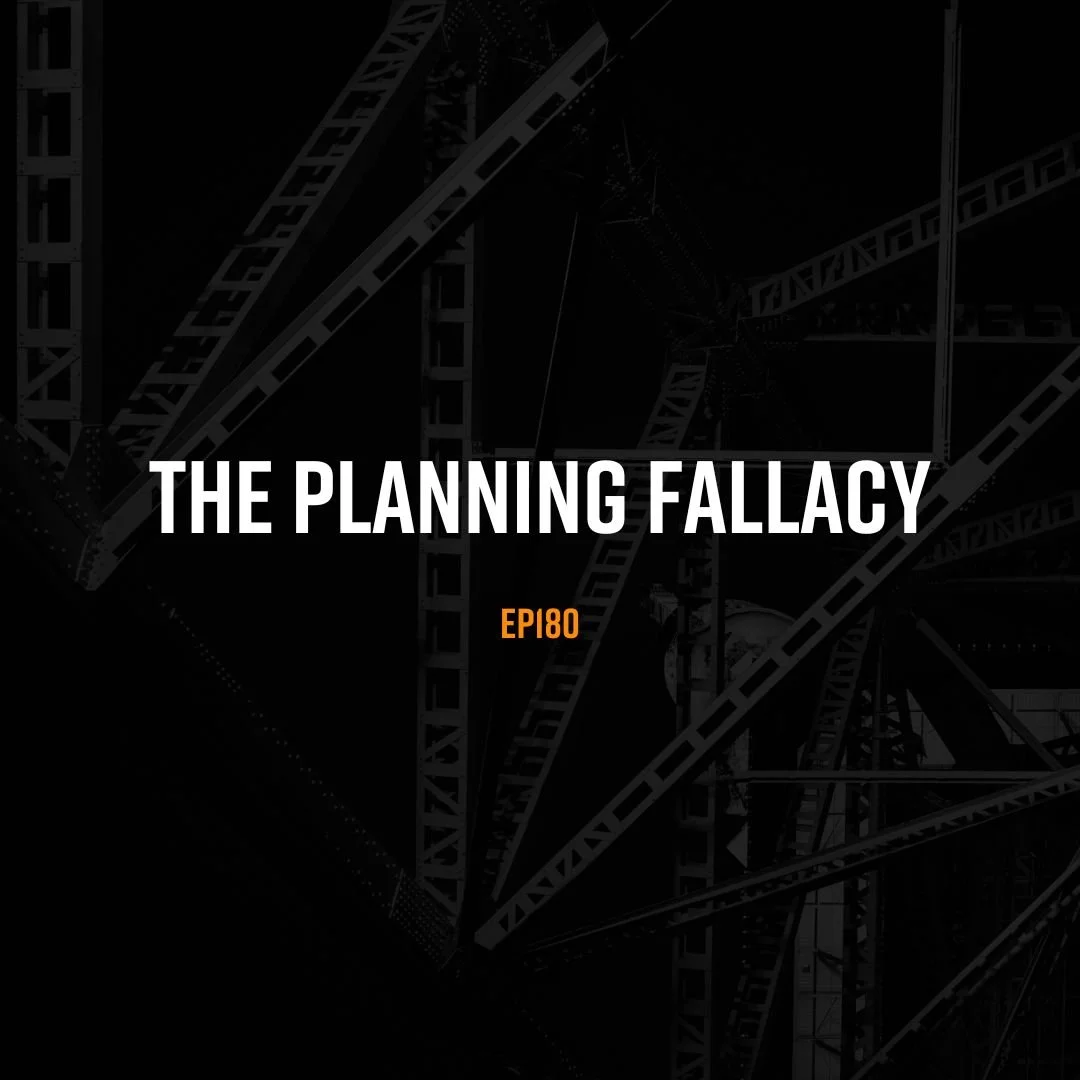The Planning Fallacy
Micah Piippo has worked at Google, at a shipyard, and at a plutonium-processing facility. Now he’s a schedule and integration manager with Intel. He helps deliver projects on time.
Micah describes the plutonium facility: “It felt like a James Bond lair.” (By the way, Dr. Brown does, indeed, pronounce gigawats as “jigawatts.” That movie was filmed before we all became familiar with the prefix giga in relation to bits and bytes.)
You can’t get a college degree in construction-project scheduling. There are courses, but Micah says that most of the preparation for this position results from simply asking a lot of questions.
He explains that curiosity is a key requirement for an aspiring scheduler. He sees at least two categories within the scheduling world:
1) the analytical route with a focus on data crunching and
2) the owner’s-assisant route that involves more soft skills. At one point he would have said that construction knowledge was needed, but he says that that’s not necessarily the case right now because the job market is so hot.
Eddie asks if schedulers find themselves getting blame when things go poorly and minimal credit when things go well. Micah confirms that, yup, this is generally the case. He says that he needs to have several jobs where he finds millions of dollars in savings in order to compensate for the couple smaller oversights that result in worksite chaos.
Scheduling is undergoing a shift right now, Micah says. The computer programs used in the past couple decades basically accelerated implementation of the algorithms that had been established in the 50s and 60s. Now, he says, a whole new world of potential is being unlocked.
Micah mentions the two streams or approaches he sees currently:
Capture (of progress status): Slap on a 360 camera and (if you’re loaded) Lidar - Software will then assist you in establishing the status of a project.
Advance Computer: Employ large-language models, ML curves, and other computer programs capture massive amounts of data to optimize the scheduling process.
The golden egg Micah longs for is full integration of the advanced mode described above with the design process, so the design-scheduling process becomes seamless.
Micah mentions that many owners don’t have advanced scheduling software. Most of the scheduling gets done by a duo consisting of a project manager and superintendent. Owners struggle to see the value in bringing in a scheduling specialist. His favorite thing is when a GC comes in with a vision of how their project is going to go.
When it comes to plan/schedule integration, Micah explains that there’s far more detail in the schedule than there ever needs to be in a plan. The challenge is closing that gap.
Eddie mentions that some of the plan/scheduling-integration claims that companies make really function simply as marketing ploys. These tools and capabilities are often not truly employed when boots are on the ground at the worksite.
Micah discusses what he calls the planning fallacy and explains three steps that are used to avoid them:
Reference-class forecasting
Pull planning
Breaking the large down to the small
Eddie and Tyler follow up with their own thoughts about the planning fallacy, including a recent example about a home-improvement project.
Micah advocates for the creation of a federally managed and openly shared data set of all construction projects. He believes this would dramatically increase efficiency.
Micah’s Two-Part Megaphone Message:
-Find the good in what people are doing, and promote it. You’re at work 8-12 hours a day. Be an advocate for the people who are there beside you.
-Plan long. Think about your decisions and the long-term implications. Your attitude will change, driving your actions differently.
Find Micah Online: LinkedIN - Micah’s podcast, Beyond Deadlines
Check out the partners that make our show possible.
Find Us Online: BrosPodcast.com - LinkedIn - Youtube - Instagram - Facebook - TikTok - Eddie's LinkedIn - Tyler's LinkedIn
If you enjoy the podcast, please rate us on Apple Podcasts, Spotify, or wherever you listen to us! Thanks for listening!

